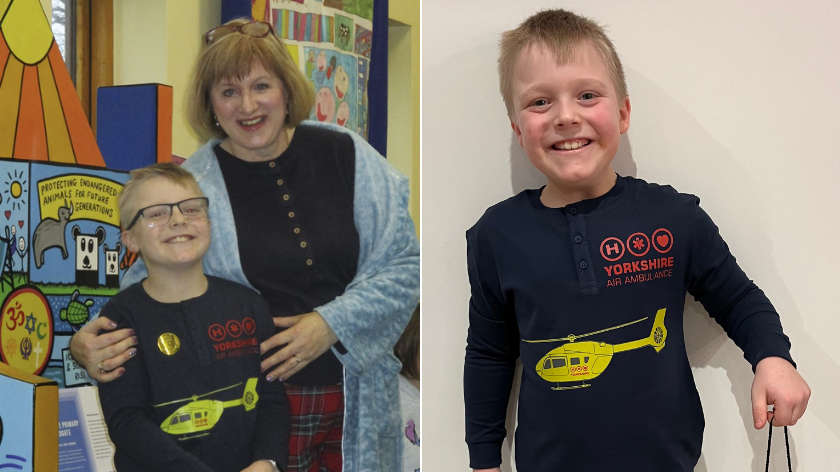
When family structures change, children often find themselves navigating unfamiliar emotional territory.
Divorce, separation, and family reorganisation can create major upheaval in a child's life, affecting their sense of security and routine.
Parents across Harrogate face the challenge of maintaining stability for their children while managing their own difficult emotions and practical arrangements.
Many experts suggest that children benefit from clear boundaries, predictable routines, and ongoing reassurance of support from both parents, even as household arrangements change.
Families can find it helpful to explore ways to support children through family changes, which reinforces emotional security and stability.
Changes in family structure can influence children's social and emotional development, and stability can help provide a sense of security during these times.
Finding the right support network is very important for families experiencing changes in structure.
From legal advice to counselling services, Harrogate offers various resources set up to help families adjust during these changes with minimal disruption to children's lives.
Learning about the options available can make a substantial difference in how smoothly families adapt to their new circumstances and how well children manage changes in their home environment.
Why children need stability during family changes
Divorce and changes in family structure are common in the UK, and many children in Harrogate will experience living arrangements that differ from the traditional family structure.
Reactions to these changes vary based on age and personality.
Younger children may find the changes confusing, while teenagers might become withdrawn or act out as they respond to the emotional disruption.
It is not unusual for children to experience behavioural changes during family transitions.
Academic performance might temporarily decline as concentration becomes difficult, and family instability can impact children's emotional and behavioural wellbeing.
Maintaining certain routines and structures helps children manage these challenging times.
Consistent mealtimes, bedtime rituals, and homework schedules provide security when other aspects of life feel uncertain.
These familiar patterns reassure children that while some things are changing, core elements of their lives remain steady.
When parents struggle to establish these frameworks independently, support from professionals such as Harrogate divorce solicitors may offer practical guidance on creating effective child-focused arrangements.
Creating consistent routines across two households
When children move between two homes, maintaining similar routines becomes important for their sense of security.
Consistent bedtimes, meal schedules, and homework routines help children adjust to their new living arrangements with fewer disruptions.
Successfully coordinating these routines depends on clear communication and reliable systems.
Parents benefit from practical solutions that reduce confusion and encourage cooperation.
Shared digital calendars make it easier for both parents to track school events, medical appointments, and extracurricular activities.
Special occasions and holidays can create tension in newly separated families.
Planning these events in advance helps reduce stress for everyone involved.
Some families create alternating schedules for major holidays, while others find ways to share these special times.
Children need age-appropriate explanations about their new living arrangements.
Younger children benefit from simple information about where they will sleep and when they will see each parent.
Older children might need more detailed explanations while being shielded from adult conflicts.
Communication tools that help parents coordinate
Co-parenting apps have become helpful resources for divorced parents in Harrogate.
These digital tools offer secure messaging, shared calendars, expense tracking, and document storage.
Popular options include Our Family Wizard, Coparently, and tools that make shared parenting communication easier, each providing features that support consistent communication about children's needs and schedules across households.
Digital calendars like Google Calendar or Apple Calendar allow both parents to view and update children's activities in real-time.
Many divorce lawyers in Harrogate recommend establishing these shared systems early in the separation process.
Written parenting plans provide clear guidelines that reduce misunderstandings between co-parents.
These documents outline expectations for daily routines, holiday arrangements, and decision-making processes.
Family mediation services in Harrogate, such as Compass Resolution and Crowther Mediation, help parents develop thorough plans that help maintain family stability during divorce.
Supporting children emotionally through transition
Children display various signs of emotional struggle during family transitions, with indicators differing by age.
Younger children might regress to earlier behaviours like bed-wetting or thumb-sucking, while parents can explore ways to support children through divorce to better understand their emotional needs.
School-aged children often show changes in friendship patterns or academic performance.
Teenagers might engage in risk-taking behaviours or withdraw from family activities.
Creating safe spaces for children to express their feelings matters during these transitions.
Regular check-ins where children can share concerns without fear of upsetting either parent help them process complicated emotions.
Parents should reassure children that both parents still love them, even if they no longer love each other.
Using neutral language when discussing the other parent protects children from unnecessary conflict.
Children see themselves as extensions of both parents, so criticism of one parent can damage a child's self-esteem.
Harrogate support services for families in transition
Harrogate offers several counselling services specialising in supporting children through family changes.
The Wellbeing and Mental Health Service provides professional support for children experiencing emotional difficulties during parental separation. Just B Bereavement Support offers specialised help for children dealing with family losses, including the emotional impact of parental separation.
Community groups like Relate Mid-Yorkshire offer workshops where children can meet peers in similar situations.
These groups help children see they are not alone in their experiences and provide helpful coping strategies.
Families can also explore helping children adjust after separation, while those needing more intensive support can access NHS Child and Adolescent Mental Health Services (CAMHS) for specialist assessment and treatment.
Legal frameworks that protect child wellbeing
UK family law provides measures designed to establish clear arrangements and encourage stability for children during family transitions.
Child Arrangement Orders determine where children will live and outline how they will spend time with each parent.
Having a formal court order introduces structure and clarity, helping reduce uncertainty for both children and parents at challenging moments of change.
The principle of "best interests of the child" guides all UK family court decisions.
This means that regardless of parental preferences, courts choose arrangements that support children's emotional wellbeing, educational needs, and physical health.
Courts consider factors such as preserving strong relationships, minimising disruption, and ensuring children's voices are heard.
Mediation offers an alternative to court proceedings for many families. This process involves working with a neutral third party to create parenting plans that take both children's needs and parental concerns into account. Mediation encourages parents to talk openly about their goals for their children, giving each parent the chance to express worries, suggest solutions, and negotiate directly.
Family solicitors play an important role in developing successful parenting plans.
These legal professionals help parents understand their rights and responsibilities while focusing on arrangements that support children's wellbeing. They can draft legally binding agreements that provide structure while allowing flexibility as children's needs change.
Recent changes to UK family court approaches have increasingly recognised the use of shared parenting arrangements when appropriate.
Courts now more readily acknowledge that children can benefit from maintaining strong relationships with both parents when safe and practical to do so.
Helping children stay grounded through family changes takes patience, empathy, and consistent routines.
When parents focus on cooperation and stability, children feel safer and more confident navigating new circumstances.
With the right support networks and legal clarity, families in Harrogate can move forward knowing that balance and emotional wellbeing are both possible after change.













